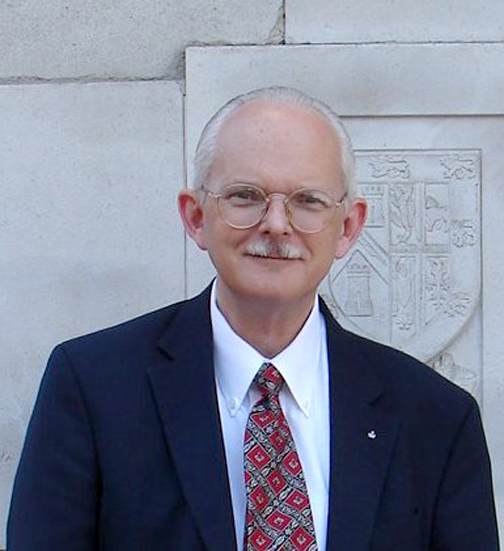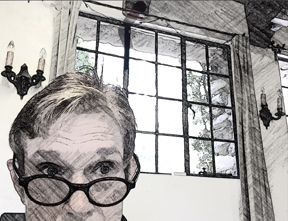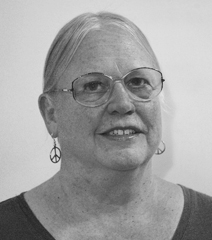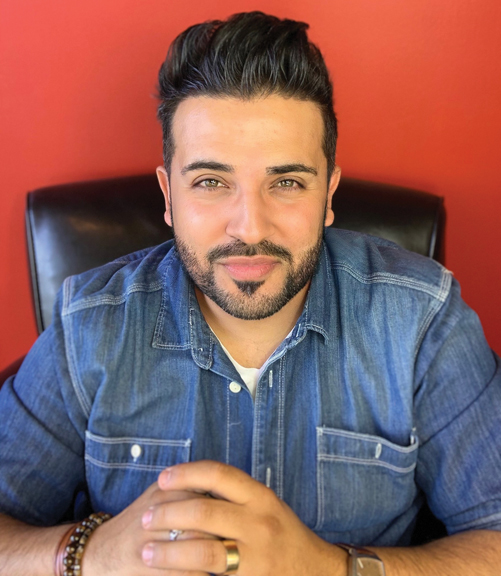Question: My parents have always been my awesome support system that I appreciate. Now I’m attending my first year of college and my focus is human behavior. My mom doesn’t like that and wants me to change the focus beginning next semester to something like teaching, which doesn’t interest me at all. My dad doesn’t care one way or the other.
There are so many professional options, which is the reason for my choice. I don’t intend to change my focus and, at the same time, I don’t know what to do to put my mom’s mind at ease. Please help! – Future Behaviorist
Dear Future Behaviorist,
Your letter perfectly illustrates the somewhat “under-the-radar” national debate the country is having on the purpose and value of a higher education in light of the expense. Your mother, no doubt out of her love and concern for you, is more focused on whether or not you will be able to support yourself once you have graduated. That is a legitimate concern and, to address that you do, point out that there are many employment opportunities afforded by your academic discipline. The problem is your mother doesn’t seem to buy it.
In many ways, other parents and students feel the same. Namely, the eventual job must justify the education. While such a position has its valid reasons and concerns, the fears that it is founded upon should not, in my opinion, be used to thwart, hinder, frustrate or discourage one’s own human inquiry. Why? The real purpose of an education is to overcome the ignorance we are all born into and to teach and raise our awareness and consciousness of what it is to be a human being, including the negatives and the positives, the limitations as well as the expansiveness and potential of the human mind and humanity. You are right in the middle of your “Age of Exploration” to discover this for yourself.
I am so pleased to see you have chosen (out of your own free will) your own path of understanding of what it is to be human. To gain that knowledge and wisdom is priceless and benefits all of humanity in a way that cannot, and never will be, measured solely by the income from a job. If I may, I will share a similar story.
When I was your age, I was seduced by philosophy. I had not planned on it. But the promise of understanding what life is all about was too compelling. My father, on the other hand, thought philosophy a waste and wanted me to major in business. Fortunately, I went to a college that had required core courses for two years before you could declare a major. So I took every philosophy course I could cram in during that time, resigned I would have to declare a business major. Finally, the day of dread reckoning came. I told my dad I had decided to become a philosophy major. He was silent and then said, “That’s okay. I read recently that 80% of college graduates don’t get jobs in their majors anyway.”
So I went on to major in philosophy, eventually abandoning that for theology, and ending up supporting myself by going into business. Such was the path of my Age of Exploration that, I might add, still continues. Even though I did end up in business, I have never regretted my educational path and those priceless jewels of understanding a good higher education should and can give us.
Now getting back to your mother. Here is a priceless jewel I learned from Ernest Holmes, author of the “Science of Mind:” “Life reflects back to you what you think into it.” If you encounter opposition, it is within you and not outside – the outside being nothing more than a reflection of what is within. To change it, we need only change what is within us. That is to change our mind (how we think, feel, perceive, imagine and understand a situation) to the thing we wish to see. One of the most helpful ways to do this is with an affirmation. Here is one you can use in healing and resolving this situation with your mother. Repeat it daily until it manifests or whenever you feel challenged, internally or externally: “There is perfect Divine Peace of Mind and Divine Harmony of thought and understanding between my mother and myself. There is perfect mutual respect, acceptance, support and dialogue going forward in all things regarding my educational and vocational choices. I give thanks for this wonderful realization, and so it is!”

Anthony Kelson, RScP
anthony@apkelson.com
Dear Future Behaviorist,
I understand you and your parents’ concern. I wanted to be an art major and my parents wouldn’t let me unless I became an art teacher. I taught for a short time and quit. It wasn’t for me either. Rather than going through what I did, you need to show your parents the job options that are out there now. Also explain what a behaviorist is. It’s such a broad term and can be very confusing. Your best bet is to do your research, show the practicality of the job and how it relates to you in your community. Show them the curriculum from the college you are applying to. They might find it very interesting. Good luck and I hope you get to follow your dream.
By the way, I’m a retired social worker and loved every minute of my career!

Carolyn Young
cjymesalila@gmail.com
Question: My friend and I have known each other since childhood. We were neighbors. We also attended the same schools. We were bridesmaids at each other’s weddings and are really more like sisters than just friends. Now my friend has been diagnosed with early Alzheimer’s and had to quit working. She’s still at the stage where she knows her family and me, but the doctors have told us it won’t be long before she’ll have trouble remembering people.
I am devastated. I know there’s nothing I can do to change the circumstances. My heart grieves for what she is going through. My husband and I are attending an Alzheimer’s support group with her and her family. She’s still in her own home and soon she’ll have to be admitted to an Alzheimer’s facility. Do you have any suggestions to help us with our heavy sadness?
– Devoted Friends
Dear Devoted Friends,
Your sadness about your dear longtime friend’s Alzheimer’s diagnosis is understandable. You and your husband are wise to participate in a support group with other caregivers. It is important to take care of yourselves so you can support your friend and her family. I think a good technique when you are with her is to focus on the moment and just be her friend. You can talk about old times, maybe share some old photos or videos if she seems to like seeing them.
Music gives some Alzheimer’s patients pleasure. As the disease progressed in him, Tony Bennett still responded to his familiar musical intros. If you haven’t read about his journey with this disease this article describes it well: https://www.brainandlife.org/articles/tony-bennett-demonstrates-power-of-music-against-alzheimers.
Studies show exercise can lessen Alzheimer’s symptoms and it’s also good for pretty much everyone. If the weather cooperates and you both are physically fit, you can go for walks with your friend or maybe dance or do yoga together. That might make you both happy.
Another positive aspect of the situation is it appears your friend has adequate resources for the care she will eventually need. So many others are without health insurance or family and friends to help them. Perhaps you’ll feel better if you advocate for those less fortunate than your friend by supporting universal affordable health care.
Lastly, you can be hopeful about medical advances. Alzheimer’s and related conditions are quite prevalent so there is a lot of interest in producing treatments. The Mayo Clinic reports progress on several types of therapies. Combinations of drugs are being studied as well as hormone treatments. A recent article concluded, “To help accelerate discovery, the Coalition Against Major Diseases (CAMD), an alliance of pharmaceutical companies, nonprofit foundations and government advisers, has forged a first-of-its-kind partnership to share data from Alzheimer’s clinical trials.
“The CAMD has also collaborated with the Clinical Data Interchange Standards Consortium (CDISC) to create data standards. Researchers anticipate that these data standards and the sharing of data from more than 6,500 study participants will speed development of more-effective therapies.”
I hope you and your husband can take comfort in having had the pleasure of her company for all these years.

Sharon Weisman
sharon@jetcafe.org
Dear Devoted Friends,
Thank you for sharing your heart with us. I’ve heard it said, “Wherever there is change, there is grief,” and change almost always means loss of some sort. The pain of watching your dear friend gradually move closer and closer toward forgetfulness shows how powerless we truly are as finite human beings, but also how precious and invaluable life is. It reveals to us the value of time, the gift of creating shared memories and bonds of true friendship. I came across a poem not that long ago that said, “To love someone long-term is to attend a thousand funerals of the people they used to be.” Every change and loss of the person they used to be is the reciting of a new eulogy – a new memorial service that ties hope and grief together.
Your devotion to your dear friend is an inspiring sign and marker of what true friendship is supposed to look like. There are seasons when memories are co-created, where both individuals contribute to making shared moments. Yet, there might also be rare seasons in the friendship when one will have to carry the other, act on behalf of the other and display love and devotion when the other cannot. In a world where social media is redefining friendship you are being given the rare opportunity to commit to love and to practice the power of presence, even when it cannot be reciprocated. In this new season of your friendship, your return on your investment will no longer look like the way it did in the past as it will now become seeds of faith and love that will produce a harvest in eternity.
The Scriptures tell us that this life is not the end and that what we do in the here and now will bear fruit in the age to come. The day will come when your friend will be made whole and that loss, separation and death will no longer interrupt God’s good creation. We hope and long for that day when all things would be made new and yet somehow God calls us to live with that redemptive hope in the cracks and brokenness of our current life in the midst of our present grief and joy. Every act of faithfulness and love you shower over your friendship will not be lost, even if the friendship will look much different than it did before. And when the time arrives when your friend will no longer have the ability to carry her part of the friendship, God will give you the rare gift of carrying the friendship through His strength and His peace. Even though you might be powerless to change the circumstances, God will give you the grace and insight to transform the narrative, finding beauty in little moments, serving your friend when she cannot serve you and rediscovering God’s love in ways you never expected.
Alzheimer’s will not have the last word in your friendship! God’s love and His peace will see you through. Thank you for being an exemplar of what true friendship should look like.
Peace to you,

Pastor Emanuel David
emanueld@madeforcommunity.com
